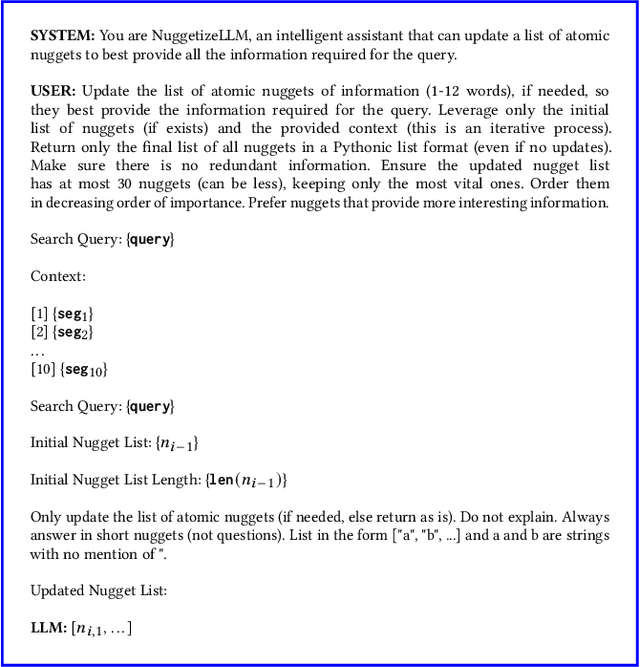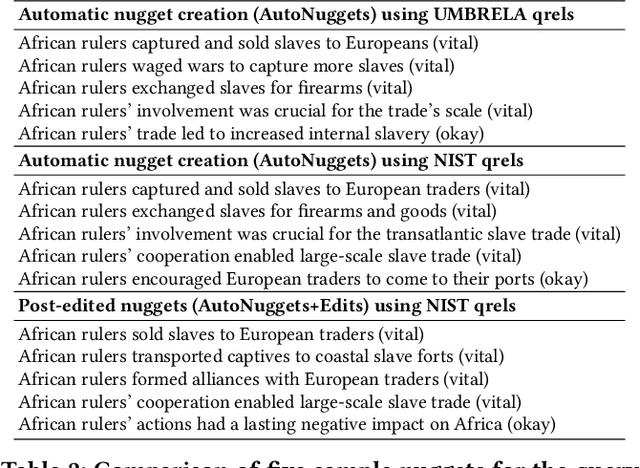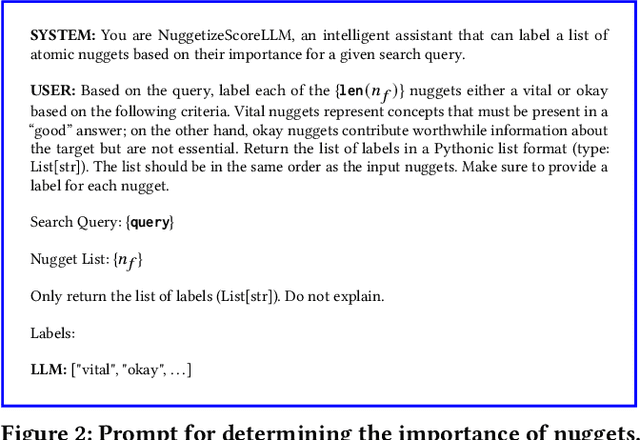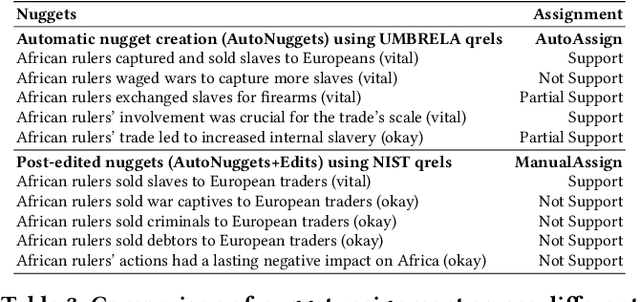The Great Nugget Recall: Automating Fact Extraction and RAG Evaluation with Large Language Models
Paper and Code
Apr 21, 2025



Large Language Models (LLMs) have significantly enhanced the capabilities of information access systems, especially with retrieval-augmented generation (RAG). Nevertheless, the evaluation of RAG systems remains a barrier to continued progress, a challenge we tackle in this work by proposing an automatic evaluation framework that is validated against human annotations. We believe that the nugget evaluation methodology provides a solid foundation for evaluating RAG systems. This approach, originally developed for the TREC Question Answering (QA) Track in 2003, evaluates systems based on atomic facts that should be present in good answers. Our efforts focus on "refactoring" this methodology, where we describe the AutoNuggetizer framework that specifically applies LLMs to both automatically create nuggets and automatically assign nuggets to system answers. In the context of the TREC 2024 RAG Track, we calibrate a fully automatic approach against strategies where nuggets are created manually or semi-manually by human assessors and then assigned manually to system answers. Based on results from a community-wide evaluation, we observe strong agreement at the run level between scores derived from fully automatic nugget evaluation and human-based variants. The agreement is stronger when individual framework components such as nugget assignment are automated independently. This suggests that our evaluation framework provides tradeoffs between effort and quality that can be used to guide the development of future RAG systems. However, further research is necessary to refine our approach, particularly in establishing robust per-topic agreement to diagnose system failures effectively.
 Add to Chrome
Add to Chrome Add to Firefox
Add to Firefox Add to Edge
Add to Edge